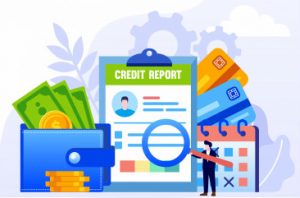Financial health refers to how you manage your savings and plan for your future. All of your financial decisions and habits affect your financial health.
Thus, it is essential for one to start early when considering what healthy financial habits will help get you on track to achieving specific financial goals.
Here we discuss five personal financial habits you can start implementing immediately to help manage your expenses more wisely and save for unexpected expenditures.
1. Set Financial Goals That are Meaningful

Setting goals is the first and probably most crucial step to financial success. Without goals, you will not be able to track progress and hold yourself accountable for your financial habits.
Do take note to set Specific, Measurable, Actionable, Realistic and Timely (SMART) goals.
Here are some examples of SMART financial goals:
- Pay off S$1,500 of outstanding debt in 6 months
- Save up to S$6,000 in one year
You can see how these above goals are specific and measurable yet actionable in contributing to your personal finance.
What’s most important is to make sure that you are regularly reviewing and setting both short-term and long-term financial goals. By having both, you’ll stay motivated while focused on achieving financial independence.
2. Regularly Review Transactions and Reduce Unnecessary Expenses
Keep track of your monthly bills and necessary expenses to determine how much budget is left for shopping and other leisure activities.
Try to stay disciplined in sticking to your monthly budget and be mindful that your budget should be at most 80% of your salary or allowance. Whenever possible, manage your impulse spending, especially during stressful periods.
Take some time each month to review your transactions, which will help you identify other expenses that could have been avoided, such as credit card late fees or monthly subscriptions that are underused.
3. Pay Your Bills Ahead of Time and in Full

Take time to review the fine print on your credit card statements, they will often state late payment fees and interest fees if you only make the minimum payment.
By paying your bills promptly and in full, you will avoid accumulating more debt from interest payments. Snowballing interest payments can result in the deterioration of your credit score (thanks to compound interest).
In addition, if your credit health is considered poor, you will face difficulty getting approval for future loans such as education or mortgage loans.
Avoid spending on credit cards, not only will this prevent you from chalking up credit card debt, there’s a likely chance you will have a better indication of your account balance than you would if you are shopping with a credit card.
4. Save Money Regularly
Practicing prudence and cultivating the habit of saving from a younger age is one of your first steps to financial freedom. You may consider setting up automatic transfers to your savings account each time you receive your salary or allowance to avoid the temptation of emotional spending. Your future self will be thankful if you develop the habit of saving regularly.
5. Talk Openly About Money With Your Family
Actively engage in money management conversations with your friends and family, this is a simple way to improve your financial literacy and contribute to overall motivation on your progress towards fulfilling healthy financial habits.
It can also prove to be a helpful way to overcome any existing doubts about money management or taking those next steps to better your financial future.
No matter which stage you are in your financial journey, the earlier you adopt good financial habits, the more financially stable you’ll be in the future. Focus on reinforcing these good financial habits and finding new ways for passive income, whatever sacrifices you make today will reap benefits tomorrow.
Brought to our students by Credit Bureau Singapore. Follow Credit Bureau Singapore’s (CBS) Facebook for more of such updates and tips on how to stay credit active!

 TOP
TOP